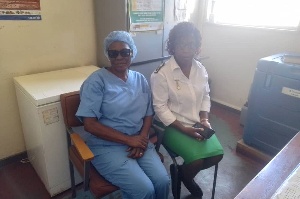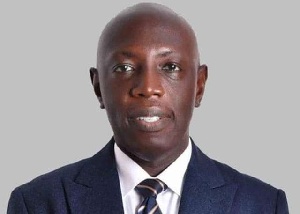Africa News of Thursday, 15 May 2025
Source: www.ghanawebbers.com
Zimbabwe: Three Years After a Deadly Measles Epidemic, Zimbabwe Sees Renewed Resolve to Fight the Virus
Zimbabwe's recovery from the 2022 measles outbreak highlights community engagement and education. These efforts transformed vaccine hesitancy into proactive health-seeking behavior across the nation.
In April 2022, Amai Nyasha's nine-year-old daughter faced a severe measles outbreak. The virus quickly spread through all ten provinces of Zimbabwe. By early October, thousands were infected, and over 750 children had died. "I didn't wait - I took her in for vaccination right away," Amai Nyasha recalled recently at a clinic in Budiriro, Harare. This time, she was back with her young son, motivated by awareness campaigns.
The 2022 measles epidemic serves as a sobering reminder for health workers and parents. Routine immunization had been disrupted during the COVID-19 pandemic. Vaccine resistance grew in some communities, especially among apostolic religious groups. Dr Aspect J.V. Maunganidze from the Ministry of Health called it a tragic wake-up call. It revealed weaknesses in their systems but also prompted decisive action.
In response to the outbreak, the government launched a two-phase vaccination campaign. The first phase targeted children under five years old, vaccinating 1,970,123 out of a target of 2,292,898 (85.9%). The second phase began in early 2023 and focused on older children aged 5 to 14 in high-risk districts like Chipinge and Gutu.
These numbers reflect rapid efforts to improve vaccination rates. Behind these statistics lies a story of fears faced and myths dispelled within communities.
In Budiriro, uncertainty spread faster than the virus itself during the epidemic. Wilbert Mavhunga, a local carpenter near Budiriro Polyclinic, recalled rampant rumors about vaccines being disguised COVID-19 shots. The pandemic left many families confused and distrustful of healthcare systems.
Health workers trained in community engagement initiated door-to-door campaigns to combat hesitancy. "They patiently explained the risks of measles," said Mavhunga. "Eventually, my wife and I agreed - it was better to act than fear." Today he is thankful they chose vaccination.
Sister Mayoyo from Budiriro Polyclinic led much of this grassroots effort. "We targeted children from four months to fifteen years," she explained. They visited homes and organized local clinics to educate families about vaccinations.
Religious engagement played an essential role in reaching hesitant communities. Apostolic groups were approached with empathy rather than judgment. Sister Ratowa emphasized respectful outreach to church leaders built trust within these communities.
At monthly baby clinics, mothers received consistent education on vaccines' importance. Health staff answered concerns directly during these sessions to shift public opinion gradually.
Dr Maunganidze highlighted partnerships with interfaith groups like Catholics and Muslims that helped disseminate health messages effectively across congregations.
Local leaders also made significant contributions to this campaign's success. Francis Musiyiwa is a respected elder who reached out to apostolic families in Budiriro for reassurance about vaccinations.
"I spoke to church leaders and organized meetings," Musiyiwa shared about his efforts using WhatsApp groups for information sharing too.
His commitment shifted conversations from suspicion toward protection for children's lives within his community.
The campaign's impact was notable in Budiriro’s coverage rates during the outbreak peak—close to 100%. Local health staff reported impressive numbers: there are 1,754 children under one year old; 6,023 aged one to four; and 19,061 under age fifteen living there now.
"We're not just fighting measles," Sister Mayoyo stated confidently about building healthier futures together—child by child—family by family—door by door!
Health teams are now better prepared for future outbreaks thanks to lessons learned during this crisis period.
"We're building systems that prevent illness while educating our communities," Sister Ratowa affirmed regarding ongoing improvements ahead!
Looking forward: Zimbabwe plans root cause analysis for vaccine-preventable diseases by June 2025.
Findings will inform national plans aimed at improving immunization infrastructure access along with education initiatives moving forward!
"Vaccines are free but must be trusted too!" Dr Maunganidze stressed emphasizing continued engagement remains vital going forward!
The aftermath of this crisis has shown resilience instead of despair among parents like Amai Nyasha or leaders such as Francis Musiyiwa alongside dedicated health staff members including Sisters Mayoyo & Ratowa!
This chapter marks not an end but rather new beginnings towards healthier futures!











